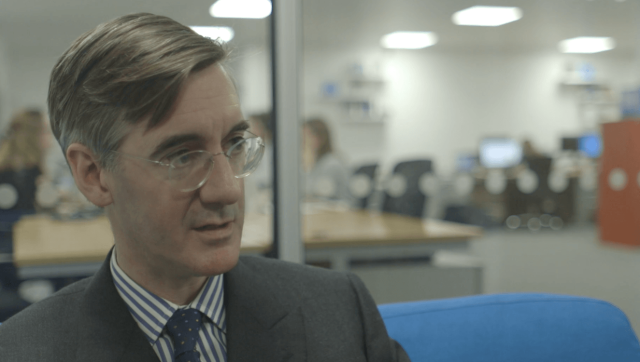Tory MP Jacob Rees-Mogg talking to UnHerd’s Charlie Pickles.
Below is the full collection of our videos of Jacob Rees-Mogg being interviewed by our capitalism editor, Charlotte Pickles.
In our first clip, JRM says that MPs could rebel against the party whip on matters of permanent constitutional impact or on questions of personal morality – but in all other circumstances they should work with ministers to implement the manifesto upon which they were elected. Yes, even if it did include “idiotic” policies such as the Tory pledge to spend 0.7% of national income on overseas aid.
He also said that Tories needed to bring coherence to their policy agenda and admitted that at the last election the manifesto was an unconnected set of policies which failed to match Jeremy Corbyn’s clear offer.
He also warned against any post-Brexit cutting back of British workers’ rights in any industry where labour has little power relative to employers. He added that Conservatives should be proud of their role in acting against the awful factory conditions of the early period of the industrial revolution when, inspired by Shaftesbury, the party fulfilled its obligations to the less fortunate.
In our second video, we discuss religion. Mr Rees-Mogg, a committed Roman Catholic, confesses that he’d definitely prefer to be the Pope than Prime Minister – laughing that he’d then be “infallible”.
He described Christianity as “true”, defended the established church, and said religious belief should largely be private.
Like most of us – the Conservative MP for North East Somerset is not prepared to defend the telephone number salaries of so many CEOs of big businesses. He also notes, in our third clip, that the vast majority of business chiefs aren’t even risking their own capital and whenever things do go wrong in their companies – as Harriet Maltby has fumed – there’s often no or little downside for executive managers. It’s extraordinary, says Rees-Mogg, that shareholders don’t already have the powers they should automatically possess to ensure sense is restored to boardroom pay.
JRM admits in our fourth clip that he backed Trump’s controversial tax cuts package which many (including UnHerd’s Liam Halligan) have warned will largely benefit the rich and worsen the USA’s already large federal deficit. Mr Rees-Mogg’s response to those criticisms? “You don’t make the poor richer by making the rich poorer” and that tax cuts can pay for themselves because – as the economist Arthur Laffer famously argued – they unleash greater risk-taking and make work more attractive. It is true that most reductions in the tax burden do increase positive economic incentives. The evidence, however, is that most tax cuts fall well short of financing themselves.
If Jacob backed the Trump White House’s tax policy he warned that the President’s protectionist instincts risked creating higher prices for American consumers and a general down-turn in world trade which could jeopardise the last 25 years of historic progress in reducing global poverty. He said we needed to do more for the casualties of globalisation and of economic change but closing our markets to the world wouldn’t help anyone. The White House is expected to make a decision on trade relations with China very soon and because the US President’s core voters believe the companies they work for don’t enjoy a fair fight with many overseas companies, there may well be political trouble for him in not acting. Henry Olsen blogged the polling numbers recently.
In our final instalment we turned to technology and the power of the giant tech firms.
If Messrs Bezos, Cook and Zuckerberg etc are interested in the Moggster’s opinions we have one piece of good news and one piece of bad news:
- Answering Charlotte Pickles’ questions he showed no interest in action to cut the market share of any of these big firms.
- The bad news for them is he wants to end their special status. They must all bear the same legal responsibilities as, eg, other cab companies if (yes, we’re looking at you Uber) if they organise journeys for people from A to B. Equally online publishers, says JRM, shouldn’t escape the regime that newspapers must abide by, if online tech companies do publish (or ‘platform’) stories (after this week it’s no longer quite clear what, eg, Facebook’s plan is re news).









Join the discussion
Join like minded readers that support our journalism by becoming a paid subscriber
To join the discussion in the comments, become a paid subscriber.
Join like minded readers that support our journalism, read unlimited articles and enjoy other subscriber-only benefits.
Subscribe